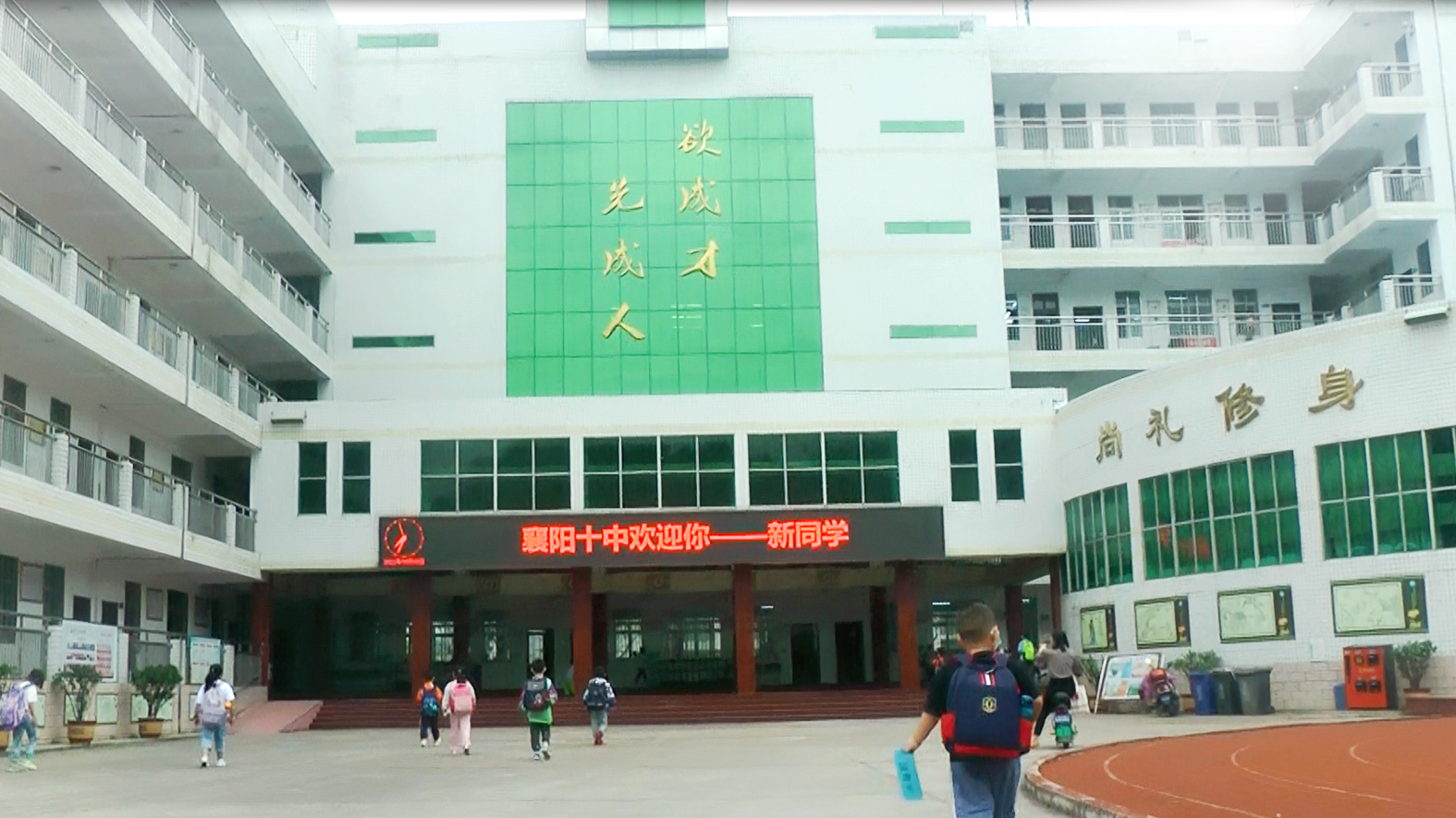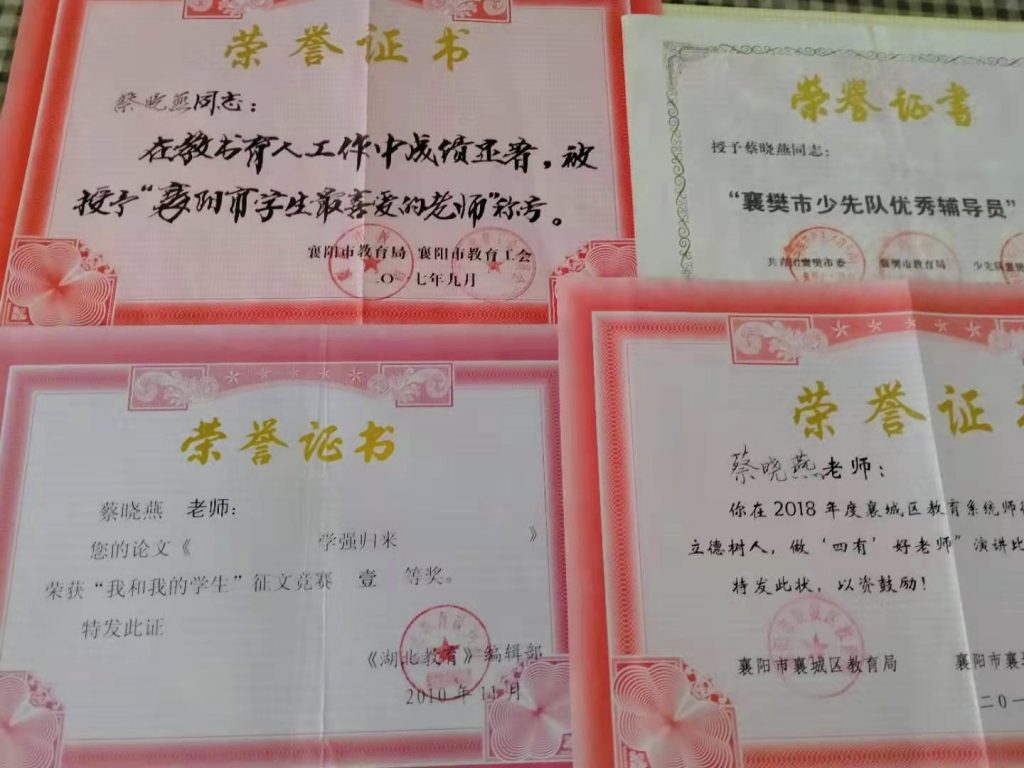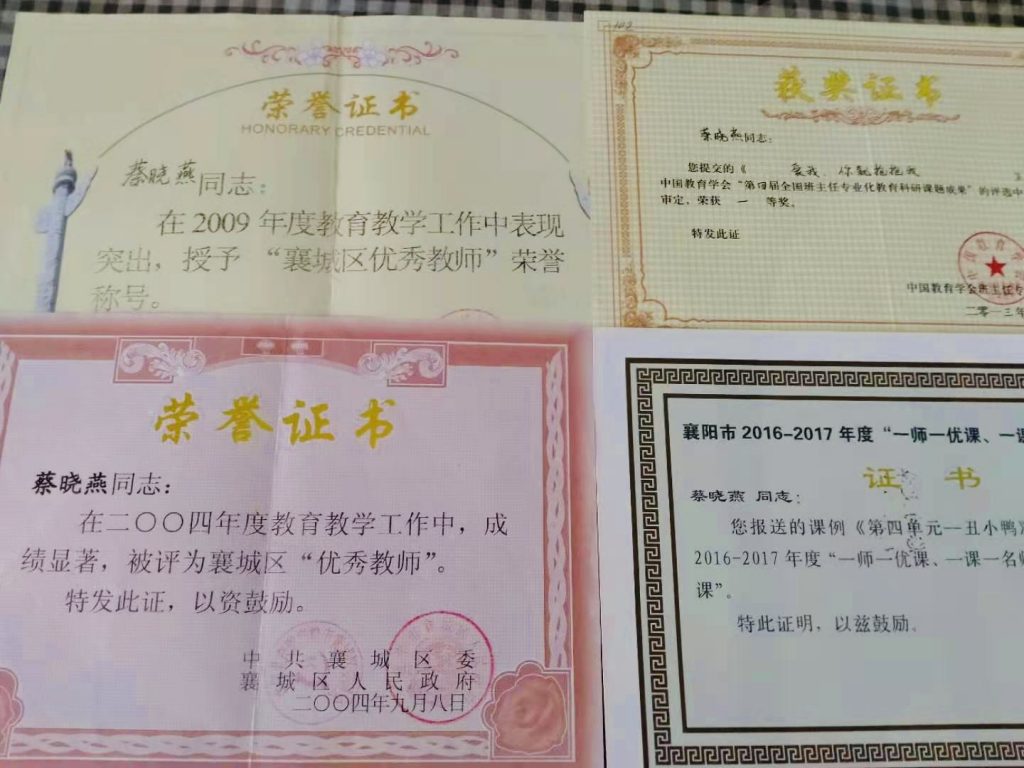Having taught for three decades she remains in the lowest intermediate level. Primary school teacher is wondering: could she achieve higher before retirement?
Cai Xiaoyan decides to make one last effort to get her title upgraded. This remarkable teacher, loved by her students, cannot figure out why she is so unpopular with the professional title.
The professional title thing is too torturous. If I can’t pass it again this time, I’ll let it go, or I’ll break down.
Cai Xiaoyan
Cai Xiaoyan participated in the evaluation and got the title of an intermediate teacher in 2002. Since then, she has never taken a step up in her professional title.
“Our school’s teacher title assessment is, in my opinion, people-oriented,” Cai Xiaoyan emphasises the word ‘people’.
“There are five different classifications of these teachers in the school. The first echelon is the headmaster and school leaders, followed by the middle-level cadres, such as the head of the grade. Then the class advisers, followed by the frontline teachers who teach the main subjects such as Chinese, Mathematics and English. The last echelon is the non-class advisers who teach secondary subjects such as PE or music. They are the poorest of the poor,” Cai Xiaoyan explained.
“Every time quotas are allocated to the school, they are given priority to those in the first echelon, then cascade down to the next. But with too few targets, the leaders themselves don’t have enough. When it’s our turn as front-line teachers, how many are left?”
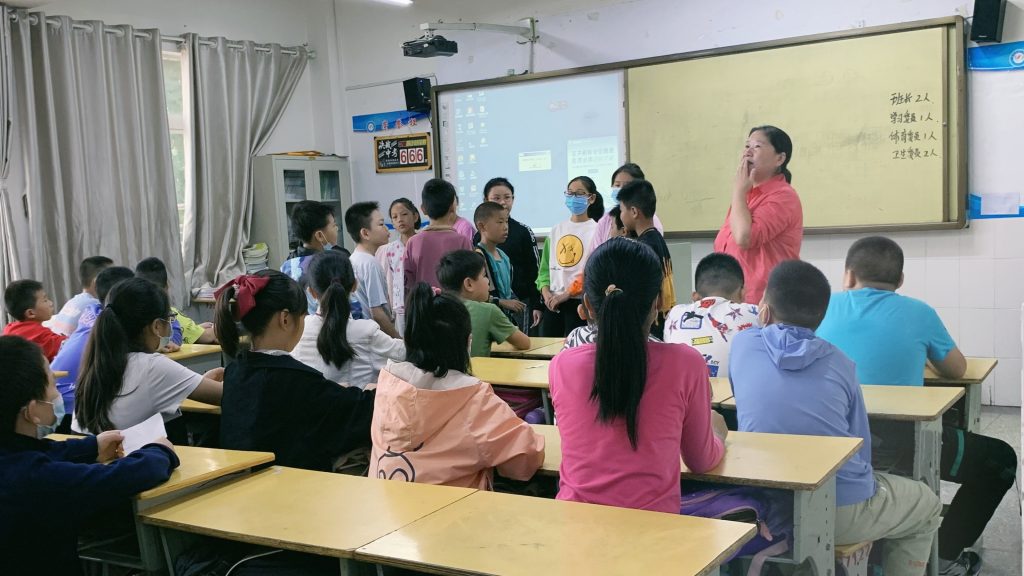
China’s current reform of teachers’ professional titles highlights that front-line teacher should receive more consideration in the title accreditation. The proportion of school leaders in each school’s senior title should not exceed 30%. However, most teachers’ professional titles remain at or below the intermediate level, not to mention the senior ones, and there is no limit on the proportion of school leaders specified in this band.
“These leaders with a medium or senior title are of our age, or even younger, left so few vacancies in each school. According to the policies, only when some of them retire does the slot become available. But I have a few years to go before I retire. I can’t afford to wait, and what can I do to compete with them?” Cai Xiaoyan sighed.
Cai Xiaoyan is a language teacher in the primary department of Xiangyang Tenth Middle School, a public school located in the urban area of Xiangcheng District in Hubei Province. Having taught for 29 years, Cai is an outstanding teacher described by local educators. She is also the recipient of the title of ‘Most Favoured Teacher by Students ‘ for years. However, she is not one of those favoured by the school’s teacher title selection.
Half a point behind
In 2012, Cai Xiaoyan took her son on a trip to Beijing as a reward for graduating from primary school. When she returned home, she heard a news that the school was at the public summons duration of the results of that year’s title assessment.
The notification of the title assessment is issued explicitly by the education department in layers after the start of the school year in autumn. Any teacher who meets the requirements is entitled to participate.
“How could it be so coincidental that it was already time for the public announcement, just during the summer holidays when teachers are on vacation?” She asked the head of the general office and was told that this notice had been sent to her. But she did not know of it.
She appealed to the headmaster, who said that it was considered an automatic waiver if you did not register within the time specified in the notice. Since the school should re-examine the results if they are questioned within seven days of the announcement, she appealed repeatedly. Finally, she got an opportunity to participate.
“But I was so careless,” Cai Xiaoyan said, “I thought I had enough and complete materials. When it came to second round, it turned out that I was half a point behind another teacher. He is both the director of instruction and a member of the review panel.”
During the assessment session, the assessment panel members were in one meeting room and the teachers waiting in another. If the panel had any questions, she could answer them immediately. However, no one went through the whole process and asked her any questions. Only when the results were announced that she realised she had missed out on a place by half a point.
One of the vice-principals of the panel told her they could not confer 2.5 points on her because they did not see the award certificate.
“I promise I had handed in that certificate. But he insisted he hadn’t seen it during the judging,” Cai Xiaoyan said, “and no one knew where it was.”
She soon found evidence. The Xiangyang Education Department granted the prize she deserved. There was also a record of the list of winners in the official statement. The director’s name appeared side by side with hers on the list.
“How can two people who appeared on the same award list get 2.5 points for one and none the other? Was it simply because my award certificate was missing?” She couldn’t understand.
The answer of the vice-principal was short and clear: yes.
“That director of instruction has two years less service than me. He was the class adviser, and I was also the class adviser. He taught language class, and I taught language class too. In terms of teaching, I can say that I am no worse than him, but he crossed over me to get a higher notch on the same level of title. And I could have been two points ahead of him, but instead, I was half a point behind.
That has cast a shadow on my mind.
Cai Xiaoyan
“I was utterly heartbroken and unconvinced. I wanted to continue with my complaint, but my family discouraged me. Forget it, they said, don’t argue, it’s just a matter of a few hundred yuan.
“But is it really about the money? I was sure that the vice-principal was doing it on purpose. If not, why didn’t they just come to me and ask me when they noticed the absence of this certificate?
“But now I feel like I can understand him a little more. After all, at the time of the review, the director was also a panel member, sitting right there in the same meeting room. Should he offend the director who was right in front for the sake of an ordinary teacher who was not related to him?” Cai Xiaoyan said to herself.
“Students’ Favourite Teacher” does not make sense
Cai Xiaoyan and her students have many little secrets of friendship and love. She affectionately calls a boy “Mickey Mouse”, although he is not serious in his studies and turns in a blank paper in his exams. She is never stingy in her praise when Mickey Mouse does well. She kept a weekly record of a slightly autistic kid Zheng’s classroom status, reading and chatting with him until one day he brought her candy and said, “Ms., can I have it as a prize when I’ve done well?” All kinds of children are the most adorable in her eyes.
Cai Xiaoyan’s teaching performance was among the best in her school. She won the “Student’s Favourite Teacher” award in the City and District, an award chosen by students. However, she still felt that her fellow teachers did not welcome her, and even less so by the professional title assessment.
“I wonder why I am so unpopular. In all the years of mutual evaluation for outstanding teachers in the school, I have not been awarded once. I have never done anything to undermine the ethics of a teacher. I have never talked about any colleagues behind their backs either. I do my best, love my students, and take my job seriously. But every time when choosing the most outstanding teachers, I was not included,” Cai Xiaoyan said in frustration.
In recent years, the school has made it clear in the criteria for title assessment that no matter how many certificates of quality lessons are awarded, only the highest one from the issuing institution is valid; no matter how many papers are published, only the highest one from the publishing institution is valid. You can get plus points for “Outstanding Teacher” selected by peers, while you get nothing for “Students’ Favourite Teacher”.
All these rules even make me wonder if they are targeting me.
Cai Xiaoyan
She was transferred to another school in 2015. The school leaders valued teachers’ ability to deliver lessons there. Hence, she participated in several Quality Lessons and Open Lessons competitions organised by provincial and municipal education departments.
Although winning these competitions is not only a teacher’s achievement but also a reflection of the school’s teaching strengths, both the preparation and delivery of Quality Lessons or Open Lessons are done by individual teachers in their own time off.
“For each competition, I spend at least a month preparing. These include collating my usual classroom experiences, optimising the lesson design, and practising alone repeatedly. If I am preparing for a Quality Lesson competition, I also spend a few weekends learning about video recording and editing, mainly in the form of a videotaped lesson.
“There are so many things to take care of during regular teaching time. Only in the evenings and weekends, when it’s quiet, I can focus on this,” says Cai Xiaoyan. In 2017 alone, she completed at least three such projects without assistants or interfering with her teaching duties.
When she returned to Tenth Secondary School in 2018, she was assigned directly to a class and lost her class adviser eligibility. She remains the favourite teacher of her students every year. But a minor incident last year stung her.
“There was news again that the school might have some quotas for the intermediate title. I wanted to upgrade my intermediate title by one or two notches. But I was not a class adviser,” she explained lamentably, “you get 1.5 points for one year as a class advisor. The assessment is mainly based on the last five years, which means you can get 7.5 points. I lost by half a point last time, and I don’t want to lose again this time on this.
“The class I’m teaching now already has a class adviser. If I want to be a class adviser, I must leave it and train new first graders. I really can’t leave these children, though!
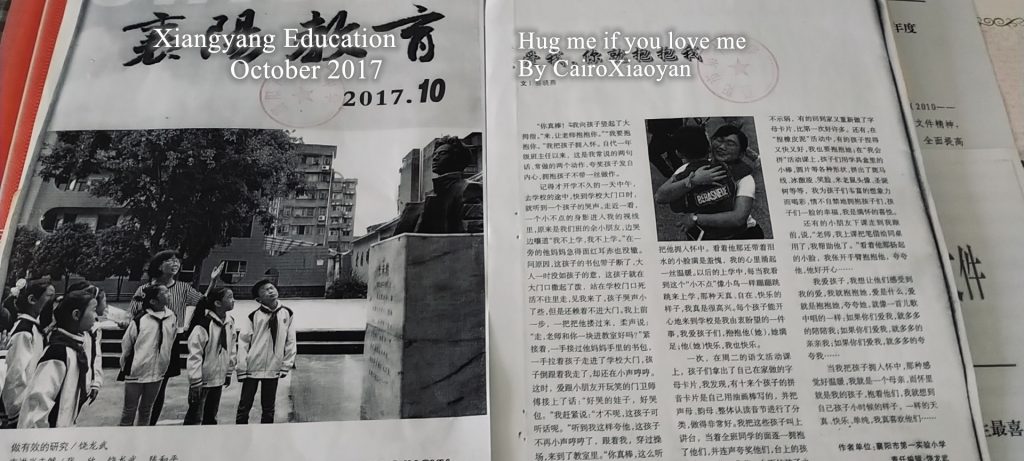
“I applied to the vice-principal in charge of teaching. The vice-principal kept persuading me to stay in my current class because my teaching performance was relatively good. Changing teachers could potentially harm class performance and student morale.
“The hardest part for me was that several parents of the students heard about my idea and called me. They pleaded with me to stay, and they said the children liked me. At that moment, I felt I was being so selfish and failing my students.
“But my heart is so bitter, how do I explain this? How do I tell parents that I gave up these students to be a class adviser at another grade so that I could accumulate more points for the title assessment? That would make me look like a selfish teacher to them. How can other parents feel comfortable leaving their children with me?
“But why don’t I deserve a higher title after so many years of dedicated work? ” Cai Xiaoyan wrestled with this in her mind many times.
Ironically, both her numerous awards for being the Students’ Favourite Teacher and the first prize of papers she won did not count when it came to her title assessment. The awards for Quality Lessons and Open Lesson competitions, which cost her many months, cannot give her cumulative points like the years of being a class adviser.
“I have done my best in teaching. As for the title assessment, I still don’t have confidence. I try my best, and then let go,” Cai Xiaoyan said.
Li E, a mathematics teacher and researcher in the Xiangcheng District Education and Research Office, describes the teachers’ professional title assessment in this way: “Participating in a title assessment is like chasing a bus on a busy road. When you don’t catch this one hoping to wait for the next one, the next one that arrives much later is full of people; when you finally catch the next one, you find that the lights are red at every junction after that. By this time, the first bus has driven off the busy road and left you far behind.”
Cai Xiaoyan felt she was like the person who had been left behind by the bus, the one who had fallen through the cracks of the title assessment, tormenting, and catching up while persuading herself to look away.
